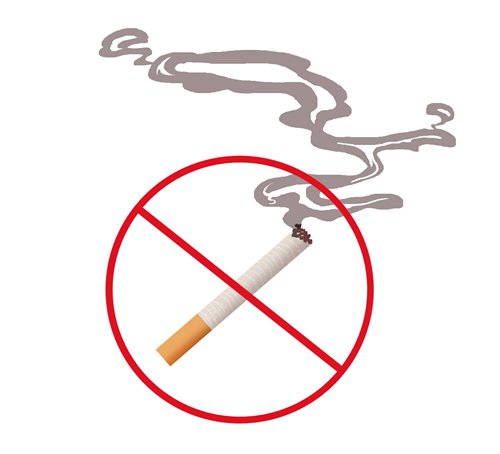- Home > News > Domestic News
- domestic news
Smoking ban in Shanghai still lacks strict enforcement

Illustration: Lu Ting/GT
In June, a Beijing court ruled that a State-run train operator should cancel all designated smoking areas on its trains after a passenger sued them over secondhand smoke, The Beijing News reported. During the trial, China Railway Harbin Group argued that having no smoking areas on regular-speed and long-distance trains "would be inhumane to passengers who smoke."
That anyone in this well-informed age would have the audacity to say that not being able to smoke is more inhumane than forcing nonsmokers to breathe toxic secondhand smoke demonstrates the selfish mentality of smokers.
While scientists, medical experts, courts and even cigarette manufacturers all recognize the harmful effects that smoke has on the health of smokers and nonsmokers, it seems that tobacco users themselves refuse to acknowledge this proven fact. They are so addicted that they will figuratively and literally blow cancerous smoke in everyone else's faces so they can get their nicotine fix.
This is also true in China, where smokers seem to feel they have a legitimate human right to pollute the air that we all must share. At the office building where I work, despite "No Smoking" signs, smokers have taken over the stairwells as their own private break rooms (they are supposed to use the ashtray on the ground floor outside).
To make matters worse, they purposely shut all the stairwell windows to infuse the small space with smoke. Whenever I have to make a private phone call in the stairwell, I must suffer their smoke. These are men in their early 30s, which is ironic considering that their generation has had far more education and awareness about the dangers of cigarettes than previous generations.
There is no national ban on smoking in public, but in March of 2017, Shanghai implemented a ban on smoking in indoor public places, workplaces and public transport. The city distributed 1.5 million smoking ban signs and 3.2 million smoking control posters, Xinhua News Agency reported, with individual violators facing fines starting at 50 yuan ($7), and venue operators up to 30,000 yuan.
Unfortunately for nonsmokers in Shanghai, legislation means little without enforcement. What are the chances that a police officer shows up at our office building to hand out citations? I applaud the local government for strictly enforcing the ban at train stations and on trains, but I simply do not see this same level of enforcement being carried out anywhere else here.
The World Health Organization estimates that a complete nationwide ban on smoking in China's workplaces would reduce the prevalence of smoking among Chinese men by 13 million. However, an article by the Financial Times reported that, according to a 2015 government study, 54 percent of Chinese people witnessed indoor smoking in their workplaces and that nearly 40 percent had witnessed smoking in government buildings.
China is the world's largest consumer of tobacco, with 316 million smokers and an additional 740 million exposed to secondhand smoke. The country set a target to reduce the smoking rate among people aged 15 and over to 20 percent by 2030 from the 27.7 percent recorded by the Chinese Center for Disease Control and Prevention in 2015, according to the Healthy China 2030 blueprint issued by the central government last year.
Last week, authorities in Shenzhen, South China's Guangdong Province, fined a store owner 30,000 yuan for selling cigarettes to a middle school student, China Youth Daily reported. Also last week in Shenzhen, regulators issued a 50-yuan fine to an expat caught puffing on a cig in a dumpling restaurant. Ecns.cn reported that it was the first time that a foreigner has been fined for smoking in the city.
If the restaurant is found to continue to tolerate smokers, they may also face a 30,000-yuan fine. The self-defeating words in local anti-smoking campaigns, however, are "may" and "face." The law does not explicitly state that violators "will be issued" a fine. And this is crying shame, because I can guarantee you that if Chinese cops handed out fines to every smoker they caught in nonsmoking areas, such bans would be a resounding success.
The opinions expressed in this article are the author's own and do not necessarily reflect the views of the Global Times.
| Chinese Association on Tobacco Control Copyright © 1992-2011 906-907 Anhuidongli, Chaoyang District Beijing 100101 |